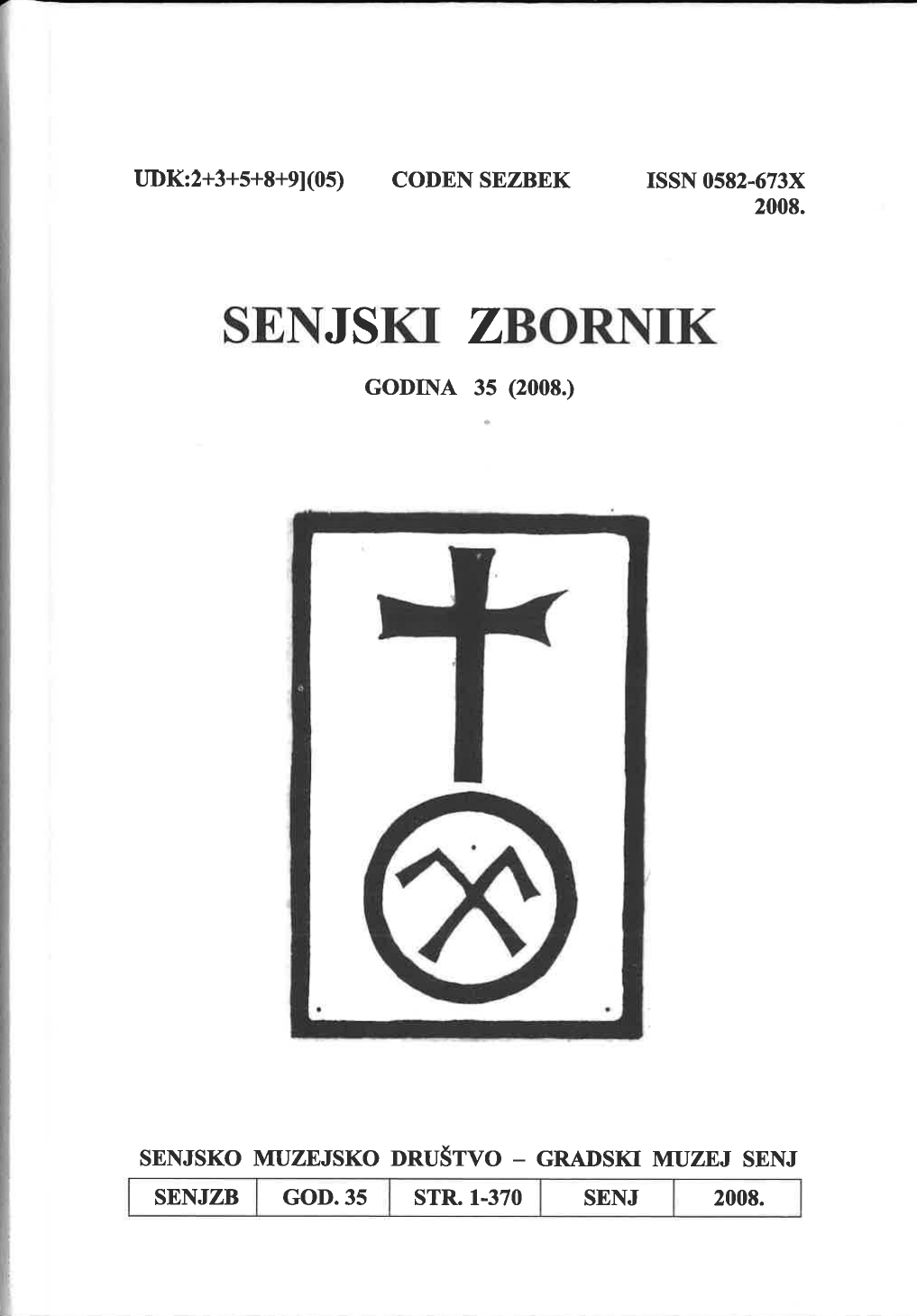O identitetu primorskih Bunjevaca: primjer Krmpota i Sjevernog Velebita
About identity of coastal Bunjevci: examples from Krmpote and Northern Velebit
Author(s): Bojan MuckoSubject(s): Cultural Anthropology / Ethnology, Culture and social structure , Identity of Collectives
Published by: Senjsko muzejsko društvo i Gradski muzej Senj
Keywords: coastal Bunjevci; identity; Krmpote; northern Velebit;
Summary/Abstract: In this paper were considered the processes in the construction of the identity of Bunjevci inhabitants in the hinterland of Novi Vinodolski and Sveti Juraj from the prospective of the modern approach of identity research. In the interaction with urban coastal centres, Bunjevci from the hinterland represent a rural pole of symbolic opposition rural/urban. On this basis the feeling of "otherness" is attributed to them and they accept it passively or resist it actively in according to local (objective) power relations.In the text similarities are referred with the results of Nevena Škrbić Alampijević's research conducted in the area of Senjsko Bilo and Krivi Put: noted processes of Bunjevci identification and auto identification are not locally specific; they are rather characteristic of the wider region of Primorje (coastland) where a coastal branch group of Bunjevci live.A semantic consideration of local ethnonyms was conducted. Analysis of ethnonyms reveals multiple meanings of names: using ethnonyms as one’s personal name, a group evokes one level of connotations and when marked with the same ethnonym from an opposing group, another level of connotations is evoked. Whether or not it comes to this kind shift depends on the power relationships within a society. For example, between the inhabitants of the town of Novi Vinodolski and Bunjevci inhabitants in the hinterland (in the middle of the 20th century) an unbalanced relationship of power occurred: Novi Vinodolski was a centre on which Bunjevci from the hinterland depended economically and administratively and culturally. In the case of Sveti Juraj and its hinterland, the power relationships were more balanced: the inhabitants of Sveti Juraj were in an administrative and educative centre but the Bunjevci from their hinterland were economically more powerful. This kind of situation in both cases reflected on the semantic of the ethnonym. In the first case, subordinated Bunjevci also accepted the attributed "otherness" and with their own ethnonym they relate negative connotations. In the second case Bunjevci from the hinterland of Sveti Juraj refusing to call themselves by the name "Bunjevci" which had negative connotations. They prefer to call themselves "Planinari" (Mountaineers) to which they relate more positive connotations. At the same time, they negatively attributed the inhabitants of Sveti Juraj. Their name "Seljari" which the inhabitants of Sveti Juraj express their "urban" character, negatively put in connotation with numerous jokes where they laughing about Seljari"s incapability to manage to organise themselves out their "urban" and coastal area, in the Bunjevci rural hinterland, in the forest, in the mountains.This work can be contextualised as a contribution to understanding the subjective level of identity of the mentioned local groups of widespread coastal branch of Bunjevci.
Journal: Senjski zbornik - prilozi za geografiju, etnologiju, gospodarstvo, povijest i kulturu
- Issue Year: 35/2008
- Issue No: 1
- Page Range: 213-240
- Page Count: 38
- Language: Croatian

